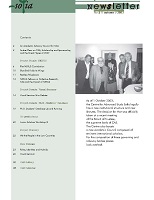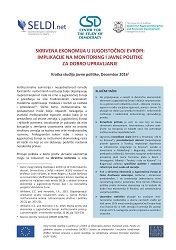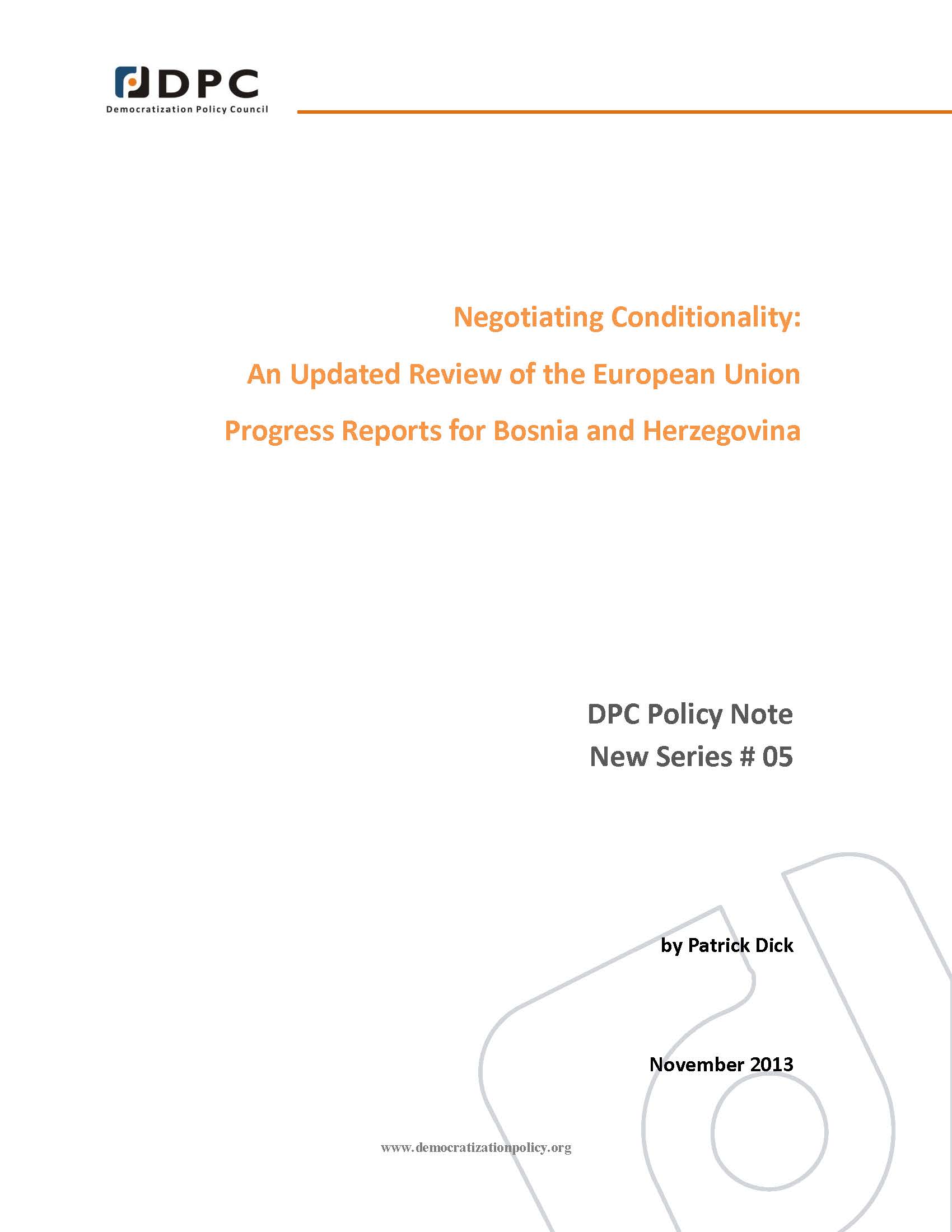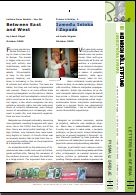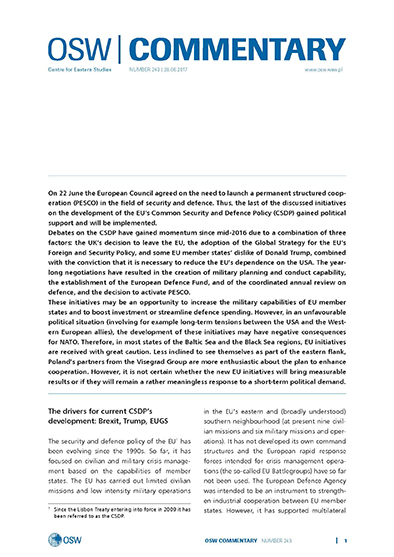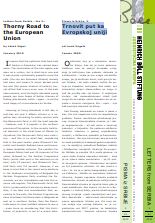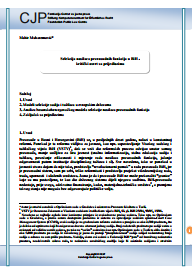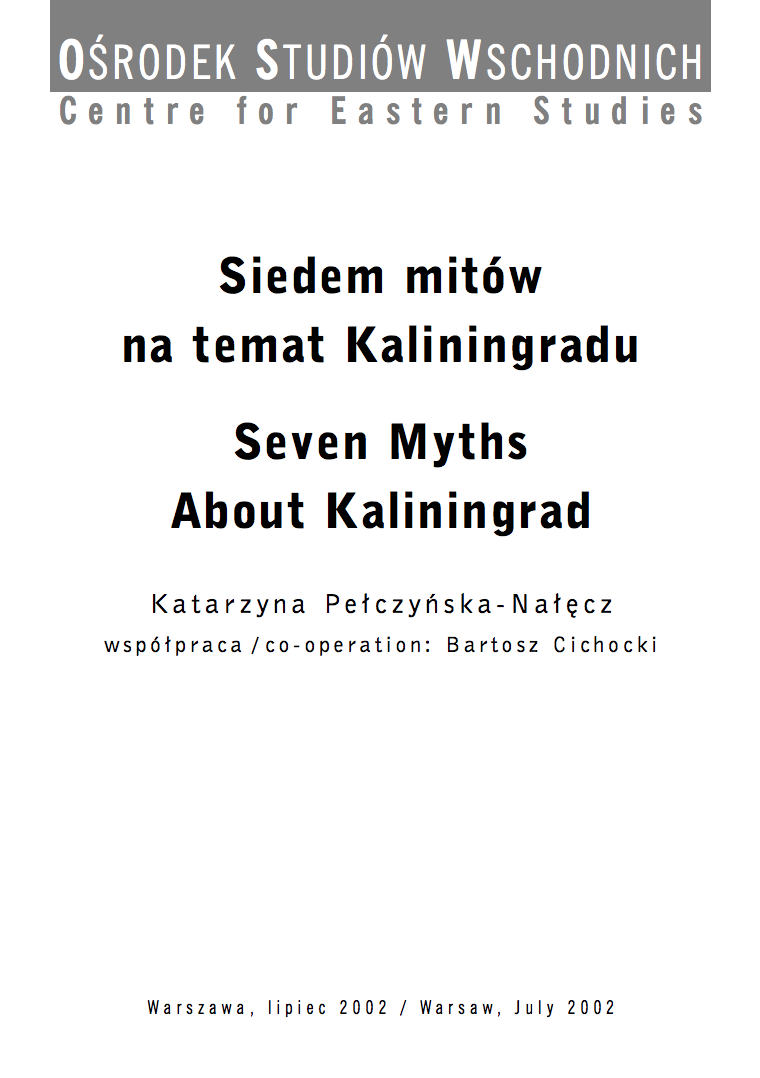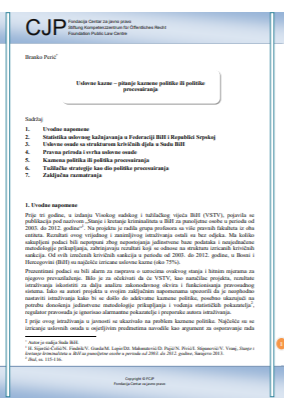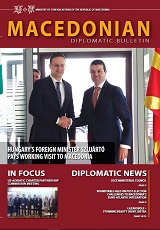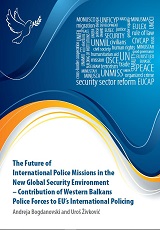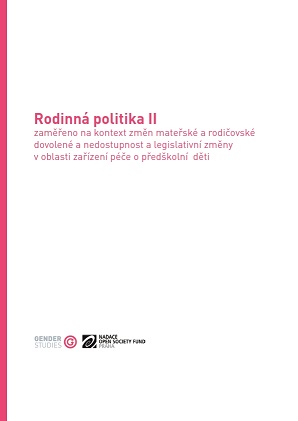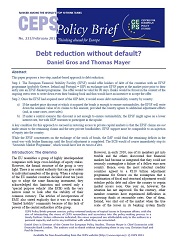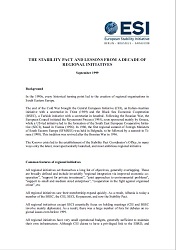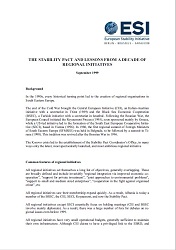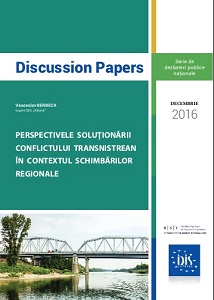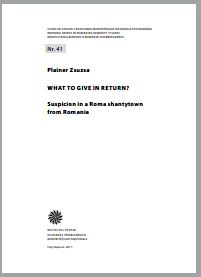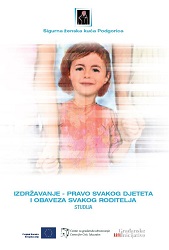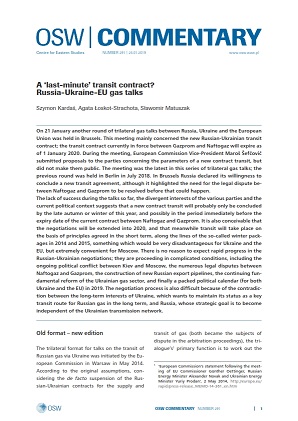DPC POLICY NOTE 05: Negotiating Conditionality: An Updated Review of the European Union Progress Reports for Bosnia and Herzegovina.
Author(s): Patrick Dick / Language(s): English
Keywords: BiH; EU membership; progress report; agriculture; constitution; judicial system; minorities; rights; Slovakia;
The purpose of this updated report is to review the European Union’s (EU) evolving approach to Bosnia and Herzegovina (BiH) in assessing fulfillment of EU membership conditions. In particular, this report is concerned with the following questions: How have EU requirements for BiH changed over time, if at all?, and; Have priorities evolved, and, if so, how? The European Commission “has drawn detailed conclusions regarding Bosnia and Herzegovina… based on the technical analysis contained in… the annual EU Progress Reports for accession-bound countries.” These Progress Reports are technical in nature, but are nonetheless collective assessments generated by a committee of diagnostic evaluators. Apart from the political and economic situation, the Progress Reports “review Bosnia and Herzegovina’s capacity to implement European standards, that is, to gradually make legislation in key policy areas more compatible with European legislation and standards.” As such, they are a useful barometer of progress made not only in reform, but also expectations and requirements.3 They provide a useful annual baseline to consider both the status of the country in question in its reform and accession preparations, as well as the EU’s expectations for the country in question. In an effort to answer the above questions, the author has analyzed the annual EU Progress Reports for Bosnia and Herzegovina from 2005 – 2013. These reports break down EU requirements by topic and sector. They are published with a nearly identical structure year after year, which facilitates comparison. The following five areas are examined: Agriculture, the Constitution, the Judicial System, Education, and Minority Rights and Protection. These sections were chosen for their link to constitutional reform issues—specifically those identified as crucial for EU accession (justice, agriculture, constitution)—as well as broader human rights issues related to BiH as a post-war, transition state (education, minority rights).
More...
